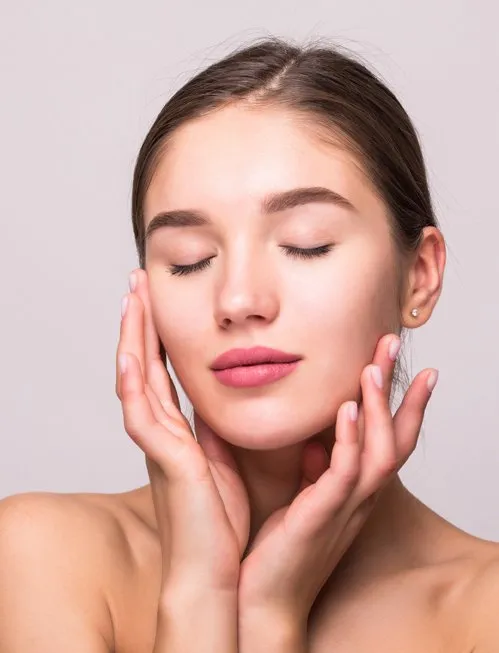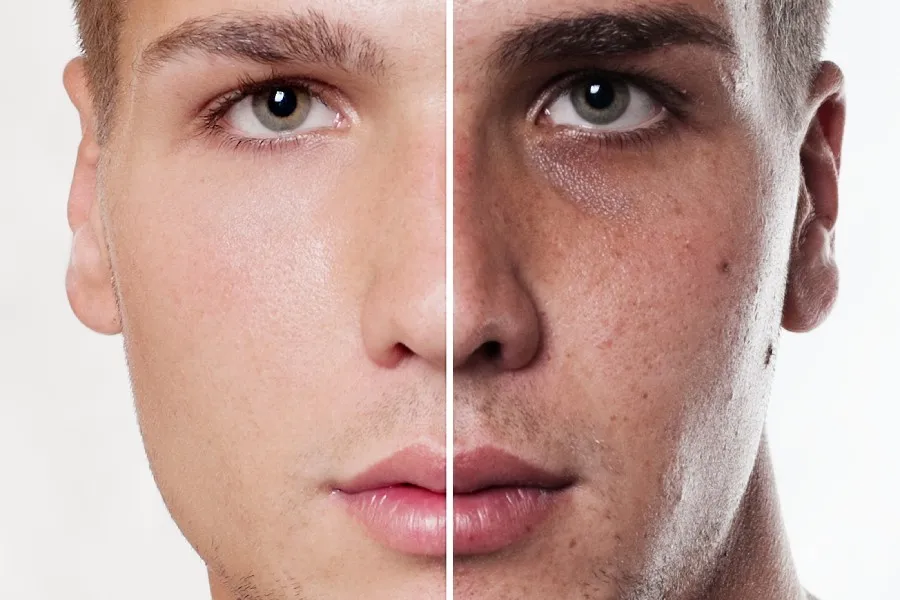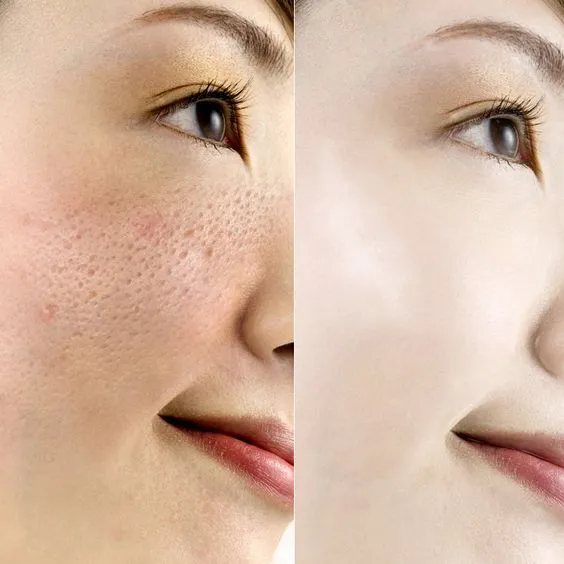Understanding Skin Whitening and Its Effects
Skin whitening, often referred to as skin lightening or skin brightening, is a cosmetic process aimed at achieving a lighter skin tone or reducing the appearance of dark spots and uneven pigmentation. This is typically achieved by reducing the concentration of melanin, the pigment responsible for skin color. The demand for skin whitening products and procedures has grown significantly, reflecting the diverse cultural ideals of beauty and the desire for a more even and radiant complexion. However, understanding the science, methods, and potential risks associated with skin whitening is critical for making informed decisions and ensuring skin health.
The Science Behind Skin Whitening
At its core, skin whitening revolves around the manipulation of melanin production. Melanin is produced by melanocytes, specialized cells in the epidermis. Factors like genetics, sun exposure, and hormonal changes can influence melanin production. Skin whitening treatments work by inhibiting tyrosinase, an enzyme crucial for melanin synthesis. By reducing tyrosinase activity, these treatments slow down melanin production, leading to a gradual lightening of the skin. Understanding the mechanisms of melanin synthesis and the factors that affect it is crucial for appreciating how different skin whitening methods work.
How Skin Whitening Works

Skin whitening treatments generally aim to reduce the number of melanocytes or interfere with the melanin production process. Some methods target the melanocytes directly, while others focus on preventing melanin transfer to skin cells. Exfoliation, either through chemical peels or physical scrubs, helps remove existing pigmented cells from the skin surface. Ingredients like hydroquinone, kojic acid, and arbutin are common tyrosinase inhibitors. The effectiveness of a particular method depends on the concentration of the active ingredients, the depth of the skin penetration, and the individual’s skin type and condition. The ultimate goal is to achieve a balanced lightening effect while minimizing potential side effects.
Types of Skin Whitening Methods
A wide range of skin whitening methods exists, each with its own benefits, drawbacks, and levels of invasiveness. These methods can be broadly categorized into topical treatments, such as creams and serums, and professional procedures, including chemical peels, laser treatments, and oral medications. The choice of method often depends on the desired outcome, the individual’s skin type, and the severity of the pigmentation issues. Some individuals also explore natural remedies and lifestyle changes to complement their skin whitening efforts. It is essential to research each method thoroughly and consult with a dermatologist or skincare specialist before starting any treatment.
Topical Creams and Serums
Topical creams and serums are the most accessible and commonly used methods for skin whitening. They typically contain active ingredients that inhibit melanin production, exfoliate the skin, or provide antioxidant protection. These products are applied directly to the skin and can be used to target specific areas or achieve an overall lightening effect. The concentration of active ingredients varies, and it is essential to follow the product instructions and consider your skin’s sensitivity. The effectiveness of these products often depends on consistent use and the specific ingredients included.
Ingredients to Look For

When choosing topical creams and serums, look for ingredients known for their skin whitening properties. Hydroquinone is a potent skin-lightening agent that reduces melanin production. Kojic acid, derived from fungi, inhibits tyrosinase. Vitamin C is an antioxidant that helps brighten the skin and reduce melanin production. Arbutin, a natural derivative of hydroquinone, is considered a gentler option. Niacinamide, a form of vitamin B3, can reduce hyperpigmentation and improve skin tone. Retinoids can increase cell turnover and exfoliate the skin, promoting a more even complexion.
Ingredients to Avoid
Be cautious of products that contain high concentrations of hydroquinone, especially without medical supervision, due to potential side effects. Avoid products with mercury, a toxic heavy metal that can cause serious health issues. Always check the ingredient list and ensure the product is from a reputable brand. If you experience any adverse reactions, such as redness, irritation, or burning, stop using the product immediately. Also, beware of products making unrealistic promises, as rapid and drastic results often indicate the presence of harmful ingredients.
Chemical Peels
Chemical peels involve applying a chemical solution to the skin to exfoliate the outer layers, revealing fresher, brighter skin underneath. The depth of the peel can vary, affecting the intensity of the results and the recovery time. Superficial peels use milder acids, like alpha-hydroxy acids (AHAs), to address surface-level issues. Medium peels use trichloroacetic acid (TCA) to penetrate deeper, treating more significant pigmentation concerns. Deep peels, which are less common, can provide dramatic results but require a more extended recovery period. Chemical peels should always be performed by a trained professional to avoid complications.
Laser Treatments

Laser treatments use focused light energy to target and destroy melanin-producing cells. Different types of lasers are used for skin whitening, including Q-switched lasers and intense pulsed light (IPL). These treatments can be effective for treating hyperpigmentation, such as sunspots and melasma. The laser energy selectively targets the pigmented cells, causing them to break down and be eliminated by the body. Multiple sessions are usually required for optimal results, and the recovery time can vary depending on the laser type and treatment intensity. Always choose a qualified dermatologist for laser treatments.
Oral Medications
In some cases, oral medications are prescribed to aid in skin whitening. These medications typically work by inhibiting melanin production or by offering antioxidant benefits. Glutathione, an antioxidant, is sometimes taken orally to lighten the skin. Other medications may include specific vitamins or compounds with skin-lightening effects. Oral medications should be taken under the supervision of a healthcare professional, as they can have potential side effects and may interact with other medications. The long-term safety and efficacy of oral skin whitening medications are still being studied.
Potential Side Effects and Risks
All skin whitening treatments carry potential side effects and risks. The severity of these effects can vary depending on the method used, the individual’s skin type, and the concentration of active ingredients. It’s essential to be aware of these risks and to discuss them with a healthcare professional before starting any skin whitening regimen. Careful consideration and professional guidance can help minimize potential complications and ensure safer treatment outcomes. Always perform a patch test before applying any new product to a large area of skin to assess for allergic reactions.
Common Side Effects

Common side effects include skin irritation, redness, itching, and dryness. These effects are often mild and temporary, resolving as the skin adjusts to the treatment. Some individuals may experience peeling or flaking of the skin, particularly with chemical peels and retinoid-based products. Other side effects include increased sensitivity to sunlight, making sun protection essential. It is important to follow all product instructions and consult your dermatologist if side effects persist or worsen.
Rare but Serious Complications
Serious complications can occur, although they are rare. Excessive use of hydroquinone can lead to ochronosis, a condition causing the skin to turn bluish-black. Chemical peels performed improperly can result in scarring or changes in skin texture. Laser treatments carry a risk of hyperpigmentation or hypopigmentation. Additionally, some products may contain harmful ingredients like mercury, which can cause severe health problems. Always seek treatment from qualified professionals and report any unusual symptoms to your doctor immediately.
Pre and Post Treatment Care
Appropriate pre- and post-treatment care is critical for maximizing the effectiveness of skin whitening procedures while minimizing potential risks. This involves preparing the skin for treatment and providing the necessary care during the healing process. Following the specific instructions provided by your healthcare provider or product instructions will improve your results and minimize your risk of side effects. Careful attention to pre- and post-treatment protocols helps to achieve a healthier, more radiant complexion.
Pre-Treatment Considerations

Before starting any skin whitening treatment, consult with a dermatologist to assess your skin type and identify any potential issues. Avoid sun exposure for several weeks before treatments like chemical peels or laser procedures. Stop using any irritating skincare products. Discontinue the use of retinoids, alpha-hydroxy acids, or other exfoliating agents for a prescribed period. Inform your doctor about any medications you are taking and any allergies you have. This preparation will help optimize the treatment outcomes and decrease the risk of complications.
Post-Treatment Care
Following treatment, protect your skin from sun exposure by using a broad-spectrum sunscreen with a high SPF. Avoid harsh skincare products and stick to gentle cleansers and moisturizers. If you’ve had a chemical peel or laser treatment, follow your dermatologist’s instructions regarding wound care and healing. Avoid picking at your skin to prevent scarring or infection. Stay hydrated and maintain a healthy lifestyle to support your skin’s recovery. Proper aftercare is crucial for promoting healing and achieving the best possible results from your skin whitening procedure.
Lifestyle Factors Affecting Skin Whitening
Lifestyle choices play a significant role in the effectiveness and longevity of skin whitening results. Sun protection, a healthy diet, and proper hydration are vital for maintaining a radiant and even complexion. By integrating these elements into your daily routine, you can support your skin’s health and enhance the benefits of any skin whitening treatments you may choose.
Sun Protection

Sun exposure is a primary trigger for melanin production, which can counteract the effects of skin whitening treatments. Protect your skin by using a broad-spectrum sunscreen with an SPF of 30 or higher daily, even on cloudy days. Reapply sunscreen every two hours, or more frequently if you’re swimming or sweating. Wear protective clothing, such as hats and long sleeves, and seek shade during peak sun hours. Consistent sun protection is essential for preventing further pigmentation and maintaining your lighter skin tone.
Diet and Nutrition
A healthy diet provides the essential nutrients your skin needs to regenerate and maintain its radiance. Consume plenty of fruits and vegetables rich in antioxidants, which help protect against free radical damage. Hydrate your skin by drinking plenty of water throughout the day. Avoid excessive consumption of processed foods, sugar, and unhealthy fats, which can contribute to skin inflammation. Incorporate foods rich in vitamin C, vitamin E, and omega-3 fatty acids to promote healthy skin. A balanced diet supports your overall skin health and enhances the effectiveness of skin whitening treatments.
Hydration and Skincare Routine
Proper hydration keeps your skin plump and healthy, promoting a brighter complexion. Drink at least eight glasses of water per day to maintain optimal hydration. Follow a consistent skincare routine that includes gentle cleansing, moisturizing, and the use of skin-lightening products, if desired. Choose products that are suitable for your skin type and avoid harsh or irritating ingredients. Exfoliate your skin regularly to remove dead skin cells and promote cell turnover. Regular skincare, coupled with hydration, supports your skin’s overall health and enhances skin whitening results.
Alternative and Natural Methods
Many people explore alternative and natural methods for skin whitening, often seeking gentler options or a holistic approach. While natural methods may be less potent than clinical treatments, they can still contribute to a brighter complexion. Incorporating these methods into your skincare routine can support your skin’s health and complement other skin whitening efforts.
Home Remedies
Home remedies involve using natural ingredients to lighten the skin. Common options include applying lemon juice, which contains citric acid, a natural exfoliant, or using yogurt masks, which contain lactic acid. Applying honey, known for its moisturizing and antioxidant properties, can improve skin health. Always perform a patch test before using any home remedies. Use these remedies with caution, as some ingredients may irritate sensitive skin. Consistent use is key; however, results will be less dramatic than professional treatments.
Natural Ingredients
Several natural ingredients possess skin-lightening properties. Aloe vera, known for its soothing and hydrating effects, can improve skin health. Turmeric, containing curcumin, has anti-inflammatory and antioxidant properties. Green tea extract contains antioxidants that may help reduce pigmentation. Rice flour is often used as a gentle exfoliant. These ingredients are often incorporated into skincare products or used as home remedies. Remember that the effectiveness of natural ingredients can vary depending on the individual’s skin type, and the results tend to be gradual.
In conclusion, achieving a radiant glow through skin whitening requires a comprehensive understanding of the available methods, their potential effects, and the importance of a supportive lifestyle. Whether you opt for topical creams, chemical peels, laser treatments, or embrace natural approaches, prioritizing skin health is paramount. Careful consideration, professional guidance, and consistent care will help you attain the desired results while minimizing the risks. Remember to protect your skin from sun exposure, maintain a healthy diet, and practice a consistent skincare routine to achieve a brighter, more even complexion. Always consult with a dermatologist or skincare professional before starting any skin whitening regimen.
